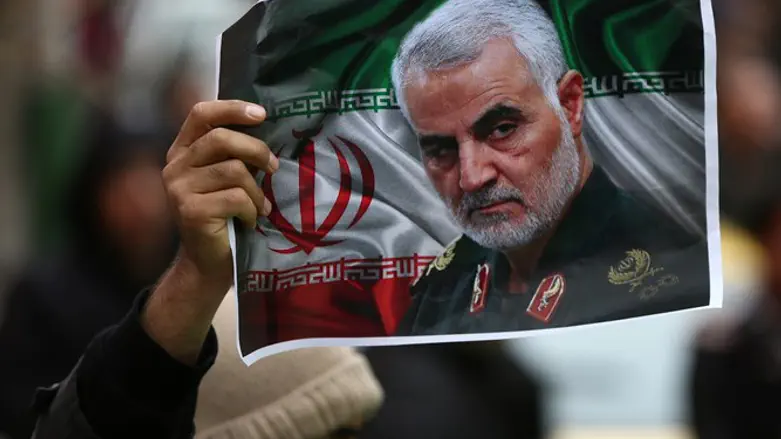
On the day the US military killed top Iranian commander Qassem Soleimani in Baghdad, US forces carried out another top secret mission against a senior Iranian military official in Yemen, US officials told The Washington Post on Friday.
The strike targeting Abdul Reza Shahlai, a financier and key commander of Iran’s elite Quds Force who has been active in Yemen, did not result in his death, four officials familiar with the matter told the newspaper.
The unsuccessful operation, however, may indicate that the Trump administration’s killing of Soleimani was part of a broader operation than previously explained, raising questions about whether the mission was designed to cripple the leadership of the Islamic Revolutionary Guard Corps or solely to prevent an imminent attack on Americans as originally stated.
US military operations in Yemen, where a civil war has created the world’s worst humanitarian crisis, are shrouded in secrecy, the report noted. US officials said the operation against Shahlai remains highly classified, and many declined to offer details other than to say it was not successful.
Officials at the Pentagon and in Florida were monitoring both strikes and had discussed announcing them together, had they gone well, officials said.
“If we had killed him, we’d be bragging about it that same night,” a senior US official said, who like others spoke on the condition of anonymity to discuss a classified military operation.
Another senior official said the two strikes were authorized around the same time and that the United States did not disclose the Shahlai mission because it did not go according to plan. The official said Shahlai may be targeted in the future, though both countries have signaled an interest in de-escalating the crisis.
The Trump administration’s decision to eliminate Soleimani has come under scrutiny in Congress. On Thursday, House lawmakers approved a resolution to restrict the president’s authority to strike Iran without congressional approval, though it is doubtful such a resolution would pass the Senate, where the Republicans have a majority.
Cmdr. Rebecca Rebarich, Pentagon spokeswoman, said the Defense Department does not discuss “alleged operations” in the Middle East.
“We have seen the report of a January 2 airstrike in Yemen, which is long-understood as a safe space for terrorists and other adversaries to the United States,” she said in a statement quoted by The Washington Post.
The State Department offered a $15 million reward last month for information leading to Shahlai and the disruption of the IRGC’s financial mechanisms. The announcement said that Shahlai is based in Yemen and has a “long history of involvement in attacks targeting the US and our allies, including in the 2011 plot against the Saudi ambassador” at an Italian restaurant in Washington.
US officials have alleged Shahlai, born around 1957, is linked to attacks against US forces in Iraq, including a sophisticated 2007 raid in which Iranian-backed militiamen abducted and killed five Americans troops in the city of Karbala, the report noted.
Yemen in recent years has been the site of a military conflict between Iranian-backed Houthi rebels and a Saudi-led coalition.
It has long been believed that Iran is planning to use the Houthis to take over Yemen and seize the key strategic port of Aden, which controls the entrance to the Red Sea and ultimately to the Israeli resort city of Eilat.
Iran denies it is backing the Houthis and has also denied Saudi Arabian accusations that Tehran provided the Houthi rebels in Yemen with ballistic capabilities.
(Arutz Sheva’s North American desk is keeping you updated until the start of Shabbat in New York. The time posted automatically on all Arutz Sheva articles, however, is Israeli time.)